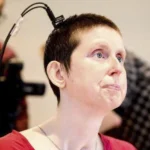Health – Demerara Waves Online News- Guyana
Plans to integrate technical institutes’ engineering courses with UG programmes
6 months 4 weeks ago
Education, Health, News, Caribbean Accreditation Authority for Education in Medicine and Other Health Professions (CAAM-HP), College of Medical Sciences Building, dental clinic, engineering courses, integration, technical institutes, transfer of credits, University of Guyana (UG)
Health Archives - Barbados Today
A stroke survivor speaks again with the help of an experimental brain-computer implant
7 months 10 hours ago
Health, United States, World
Bauta Rojas accuses Agriculture Minister of irresponsibility over swine flu
7 months 10 hours ago
Health
Health – Demerara Waves Online News- Guyana
Fireman’s death not due to GPHC’s deliberate negligence, gaps to be tightened
7 months 3 days ago
Accountability, Health, News, clinical coordination, fireman's death, Georgetown Public Hospital Corporation (GPHC), independent investigative panel, integrated approach, Mae's School fire, multidisciplinary communication, multifactorial medical conditions, reinforced escalation protocols, trauma management protocols
Parental modelling: A key strategy to tackle childhood obesity
7 months 3 days ago
Health, PRESS RELEASE, Youth, childhood obesity, gfnc, grenada food and nutrition council, health education
Health – Demerara Waves Online News- Guyana
Guyana pledges “preferential” treatment to US
7 months 4 days ago
Business, Defence, Diplomacy, Extractive Industry, Health, Natural Resources, News, Oil & Gas, Politics, security, Guyana, President Irfaan Ali, U.S. defence support, U.S. preferential treatment, U.S. Secretary of State Marco Rubio
Carriacou: GFNC and Nawasa recognise World Water Day 2025
7 months 4 days ago
Carriacou & Petite Martinique, Education, Health, PRESS RELEASE, boley spring natural artisan water, gfnc, grenada food and nutrition council, john guadeloupe, national water and sewerage authority, nawasa, world water day
Health – Demerara Waves Online News- Guyana
Guyana launches World Bank-funded One Health project to boost health resilience
7 months 5 days ago
Business, Health, News, antimicrobial resistance (AMR), Guyana One Health Project, health resilience, International Development Association, Pandemic Fund, project approval, Public Health, world bank
